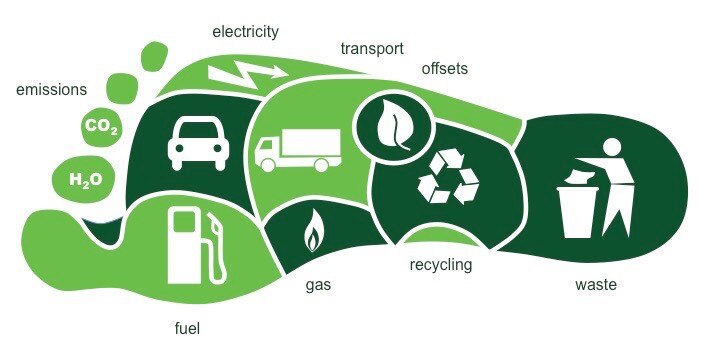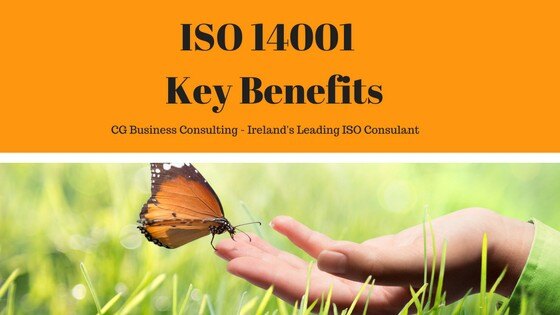ISO 14001 Environmental Management Cetification | Key Benefits
ISO 14001 is an internationally agreed standard that sets out the requirements for an environmental management system. It helps organisations improve...

Experts are now saying that recycling isn't having the expected impact. Here are twelve alternatives to help you curb your carbon imprint.
Less than 10% of plastics get recycled. Fact! To achieve any kind of significant reduction in carbon load, we will need to make serious changes to how we currently do things.
Plastic manufacturers continue to increase production whilst simultaneously failing to improve or develop a robust recycling system. Today, just 9% of plastics get recycled. Traditional plastics, which are made from extracted oil and gas, are major contributors to rising temperatures and the ever-worsening climate emergency.
How we currently recycle plastic is wrong. Fact!
Environmental experts are increasingly calling for a reduction in plastic use, as plastic waste, especially single-use, accumulates in our waters, third-world or developing countries, and even our own bodies.
China has begun to refuse our waste, a move which will have particular significance for America, whose waste is processed for many years. As over one million Americans currently live beside incinerators, both the USA and the rest of the world now needs to look at making significant reductions in producing waste by way of urgent systemic change.
However, there are also changes that we, both as individuals and organisations, can make in terms of cutting back on plastic usage. Here are twelve simple ways managers, employees and individuals can make a difference to the levels of plastic waste accumulating on our planet and thus reduce our carbon footprint.
While bamboo, wood, and stainless steel are best, by re-using plastic utensils, we can at least balance the resources required to make them. Organisations can do their bit by ensuring coffee docks and staff canteens remove single-use plastics, stocking only re-usable cutlery and cups. In addition, coffee cup lids - a major contributor to plastic mass - can be swerved. Ask the barista to add a little less water/milk, or take a few sips of your beverage before leaving the premises.
Buy goods sold in glass jars or even aluminum cans over those in plastic containers or wrapping. Opt for milk in glass bottles rather than plastic-coated cartons.
Wash and reuse glass jars, recycle cans. However, if your preferred item comes only in plastic, then please ensure you are recycling correctly. The Guardian recycling guide is a handy go-to for correct recycling tips - see HERE.
Where and when you can, and yes, time and capacity doesn't always allow - short lunches, packed to capacity restaurants filled with workers all on the same lunch break - try to eat in rather than getting a takeaway. If time/work/seating doesn't permit (and this is regularly the case), bring your own carton/lunchbox and politely ask the server to put your lunch into it.
Refuse cutlery and straws. Same for home delivery. Be sure to tell the person on the phone taking your order that you don't need cutlery or any other utensils. And if you're ordering online, this is an option on some food delivery apps.
Choose loose fresh produce and ask your butcher or cheesemonger to use only paper for your purchases. Eschew fruit and veg sold in clingfilm for loose produce. With many supermarkets making the move away from plastic packaging on fresh produce, finding loose should no longer pose the problems it did even up to as little as three or four years ago.
Alternatively, bring your own packaging, cartons or boxes of choice. If you are limited in terms of transportation and/or are a pedestrian, re-use packaging where possible and be sure to bring your long life bags with you each time you go to the Supermarket.
Organisations can ensure their canteen sells snacks and cakes loose or in wax paper. Fruit can be bought in bulk from markets and delivered in cardboard boxes.
Some health food shops or green grocers now sell in bulk, allowing customers to fill their own containers. All you have to do is verify the weight of the container before loading up.
Organisations buying coffee, sugar etc in bulk can potentially re-stock using refillable jars. At the very least, they should be eschewing single sugar and coffee sachets and individually wrapped teabags in favour of super size containers.
Instead of all those plastic dispensers filled with liquid soap, hand cream, lotion and gels, corporates can go retro and fill their rest rooms with bars of soap. While we understand that sanitiser is a prerequisite these days, is there really a need for hand cream?
Most homes are filled with half-empty bottles of various shampoos - why not take back your space by switching to solid shampoo. It's just as effective as liquid while also having the benefit of reducing carbon footprint. Workers take note - two heavy bottles of shampoo and conditioner vs one simple bar of shampoo. No brainer.
If using a bamboo toothbrush isn't to your taste, at least switch to using one with a replaceable head. Whilst in the main bristles will still have synthetic fibres, at least you will avoid binning the plastic arm every three months. For workers that's 2 x arms per quarter, a total of eight plastic arms per year. Total that by a minimum of 50% of the world's workforce and that's a frightening amount of plastic.
Buy concentrated cleaners that can be mixed with water in reusable containers. They can be found in gel, liquid and powder form. Businesses can buy these cleaners in bulk using them for everything from wiping down countertops to cleaning bathrooms.
When buying/stocking natural or frozen juices, milk by-products, or food deliveries, choose those supplied in cardboard cartons over those that come in plastic jugs etc.
Eschew bottled water and filter your own. Same water, without the plastic.
While most businesses are ahead of the game on this one by installing water coolers, they negate the good by equipping them with endless quantities of plastic cups.
Introduce a no cup policy - workers will quickly get into the habit of bringing in their own reusable bottle or at worst, re-using the same plastic bottle for at least a few days. Water fountains work equally effectively.
Buying less close will significantly reduce carbon footprint as most clothing contains synthetic fibres made of plastic, much of which shed in the wash and end up in our oceans. Many leading brands now offer cash back for returns or discounts on pre-loved stock - second hand and vintage are now 'on trend'. No longer something to be ashamed of, second hand can help save both money and the environment.
Washing clothes less would also save on mega water usage. While no-one is recommending you wear dirty clothes, maybe refrain from washing each garment after every use?
An Environmental Management System can help significantly reduce an organisation's carbon footprint by minimising waste and maximising efficiencies. Any business certified and working to the requirements of ISO 14001 will benefit by streaming operational processes and seeking ways to continuously improve performance, product and profit.
For more information on ISO certification or how ISO 14001 can protect your business contact the team at hello@cgbc.ie or drop them a call on +353 (0)1 620 4121.

ISO 14001 is an internationally agreed standard that sets out the requirements for an environmental management system. It helps organisations improve...

As the arrival of June nudges us into Irish Summer, we celebrate World Environment Day, the annual UN vehicle driving positive Environmental action.

ISO 14001:2015 specifies the requirements for an Environmental Management System (EMS) that an organisation can use to enhance its environmental...